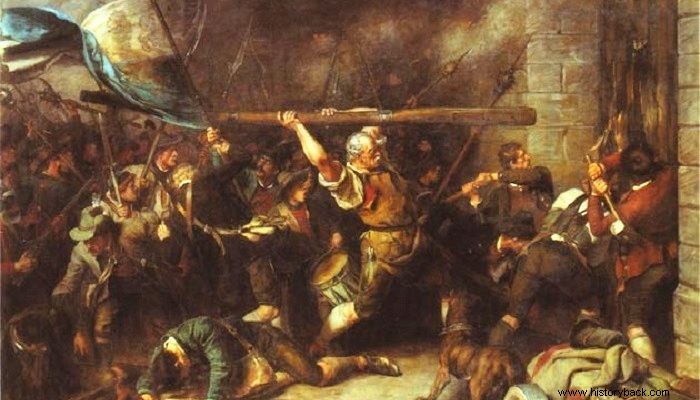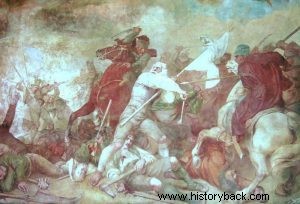
Popular uprisings were generally considered a rare phenomenon in 17th century Europe. And yet they were more common than is generally believed. The uprising of the Bavarian peasants against the Austrian conquerors in 1705, however, could be characterized as a "national revolution".
In 1704 the British, Austrian and other German and Dutch allied forces, under the Duke of Marlborough and Prince Eugene achieved a magnificent victory against the French and Bavarians at Blenheim of Bavaria. They then savagely plundered the country in order to force its ruler to renounce the alliance with France.
The Bavarian ruler Maximilian Emmanuel withdrew to France and Bavaria came under Austrian-German occupation . At the beginning of November 1705, however, the Bavarians rebelled against the conquerors. Initially, at the beginning of November 1705, the inhabitants of Lower and Eastern Bavaria revolted in the valley of the river Inn. Gradually, however, the rebellion spread to the Upper Palatinate as far as the Danube.
On December 21, the Bavarian revolutionaries formed a parliament in Braunau. The Austrian-Imperial initially did not pay much attention and were inactive for about two months giving the insurgents time to consolidate their position. But when the revolutionaries tried to attack the capital Munich, the Austrians reacted.
On Christmas Eve 1705 a phalanx of rebels moving towards Munich was spotted – by others betrayed – and the Austrians attacked it although they were outnumbered. The untrained citizens could not face regular troops and were soon dispersed. Over 1,100 were mercilessly slaughtered by the Austrians in the so-called "Christmas Massacre". The Austrians had only 40 casualties.
A few days later, on January 8, a small force of 1,300 Austrians met 7,000 rebels at Eidenbach. The result of the battle was the absolute defeat of the Bavarians who left on the field around 3,000 dead and wounded, compared to 300 of their opponents. After that the revolution collapsed.
On January 11, a delegation of the revolutionaries presented themselves to the Austrians and requested a cessation of hostilities. The proposal was accepted, and in the following days the last towns held by the rebels surrendered. The leader of the revolutionaries, Johann Hoffman, who escaped in Eidenbach, was captured and executed.

The Christmas Massacre.
